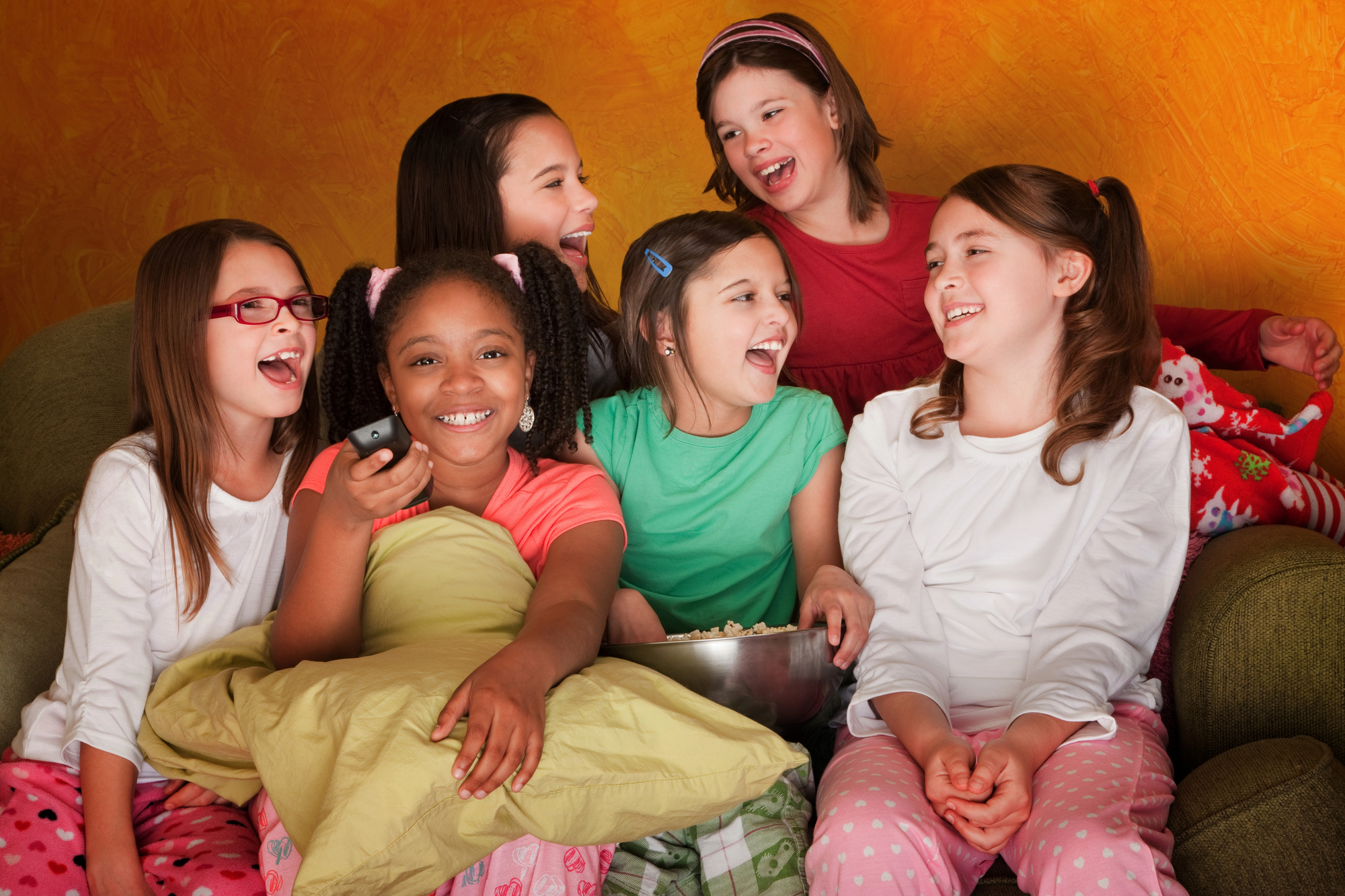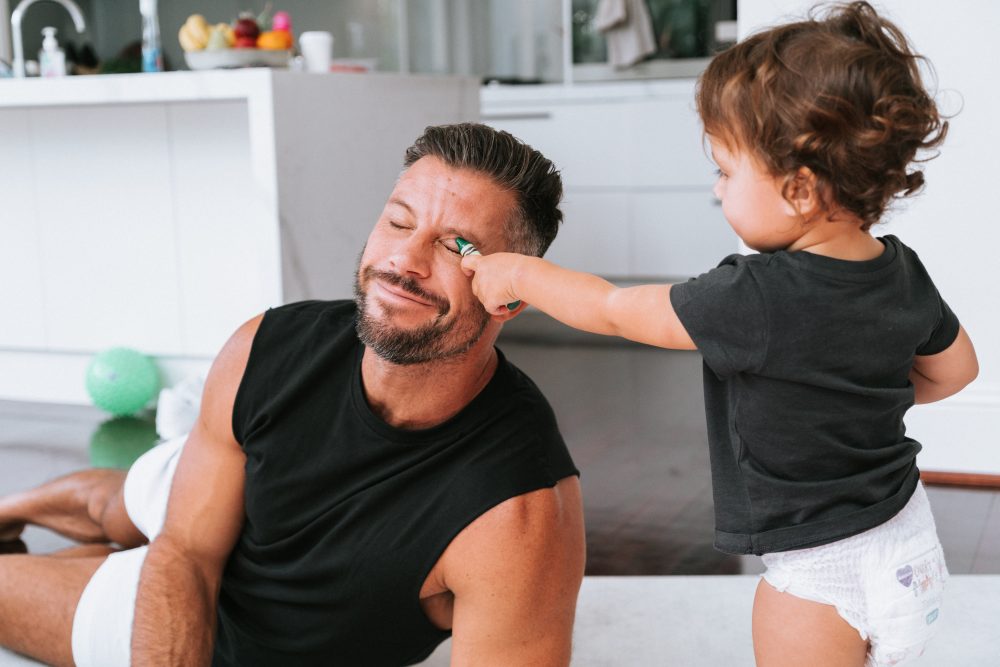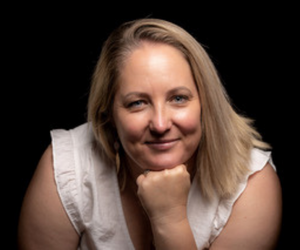Before I begin with my sleepover safety advice and tips, I would like to acknowledge that sleepovers were one of my fondest memories growing up.
When I went to a sleepover, I got to see how other families interacted and lived. I got to see how their mum’s took care of my friends and the difference in living conditions between me and my peers.
I’m not saying I was dirt poor, but I definitely wasn’t the most affluent family in my school. I had hand me down everything and my family couldn’t afford more than the bare essentials.
Plus, I didn’t grow up with any overly maternal parental figures and watching other people’s mums love and care for their kids was such a different experience to mine, that I would flock to my friend’s mums and spend time with them just to be around that kindness.
However, in my time as a police officer, detective and becoming a child safety expert, I now see many red flag behaviours and issues in some of the families I stayed with, that I never even recognised as a child. Things I now know were dangerous and predatory behaviours that thankfully didn’t result in anything bad, but had the potential to.
Having my own daughter and knowing what I now know has changed my perception on sleepovers and although I won’t ever tell a parent what to do, I offer you the following tips to help you feel empowered in your choices of who to trust with your children.
NOTE: Sleepovers aren’t necessary for a child’s development. They are a nice ‘experience’ if the conditions are safe, but they don’t offer anything essential, especially when our children are young. Sleepovers with family members and grandparents are not generally safer either and we should always be vigilant.
Sleepovers are a HUGE risk factor if the family/person entrusted with your child’s safety isn’t SAFE. Even older children in the care of an ‘unsafe’ person/family are at risk due to many factors. Here are a few:
- Differing beliefs and values between homes ie. what I think is NOT ok or safe they may think it’s ok and safe and allow children to do whilst in their care.
- Lack of supervision and oversight eg. not supervising play for younger children due to the children being busy and happy, which might be include online usage. Not overseeing older children thinking they are old enough to take care of themselves.
- Lack of autonomy and consent ie. your child feeling the need to conform or go along with something that they don’t feel safe to do or uncomfortable with because of the pressure of being in the home of the friend or someone else and feeling like they can’t say ‘no’. Grandparents and older family members are also often not very good with respecting consent and children’s personal boundaries.
- Adults – 90% of all child sexual abuse is by someone known to the child. This means our children are more likely to be abused by someone in their immediate family, friends and circles. Not everyone that we trust with our children are safe and appropriate. We don’t always see this side of other adults since they hide it from everyone. In my experience, sleepovers are the perfect opportunity for adults to act on their feelings and thoughts due to not having you nearby to see, stop or do anything to stop them. Your child also doesn’t generally have the strength, confidence or experience to deal with an adult in that moment when abuse happens. Sleepovers are the easiest place for a predator to gain access to a child. I am always aware and very cautious of other adults, regardless of who they are to me and how long I have known them because of this. This means I spend time assessing adult behaviours, more so than what any an adult says to me. Check out the ‘Safe Adults’ blog post for a list of safe adult behaviours.
- Siblings, sibling’s friends (especially older) are also a potential risk. 30-50% of child sexual abuse is by another child and you only have to read the comments on my TikTok account to realise that a lot of abuse is by other children (mostly older) in the home. We generally let down our guard when it comes to older siblings babysitting, supervising and taking care of kids in the home. Even if you don’t allow this, at another home they may do. In my experience, this isn’t adequate or safe supervision of my child or any child and it’s not an older sibling’s job to supervise or take care of children. Hence, I always gauge whether other children, especially older children will be present during the sleepover.
- Other adults in the home. Whilst you might be ok with the parent or adults of the child in the home they are staying, what about other adults? Will there be any other adults going to be in the home whilst your child is there. I’ve been to one-to-many cases of a child being abused by a visiting adult during a sleepover, this includes grandparent homes and grandparents, close relatives and adult family.
- Lack of online safety and supervision. Different homes have different opinions, beliefs and rules around online safety. What is considered safe or appropriate with regards to online usage, games, movies or tv shows in one home, is the opposite in another. I have seen both in my daughter’s friendship groups and in my job that children are often exposed to adult and inappropriate content online when at sleepovers. This can also be introduced and driven by other children or adults in in the home as a way to groom children.
As you can see from the above list (which I’m sure I’ve missed some others) there are some considerations for sleepover at another person’s home as well as when a child stays in YOUR home.
NOTE: It’s imperative that we PROVIDE a safe environment for children staying in our homes. We should also be considering the risk factors listed above and doing our best to prevent and reduce any potential risks when taking care of other people’s children.
Conversations around this topic help us identify whether we have similar opinions on sleepovers or if there may be a difference in opinion. I encourage you to always discuss sleepover arrangements with anyone proposing a sleepover and try to do so with time to consider/re-consider the arrangements.
Other things to consider in your sleepover decisions:
- Age and development – young children obviously have extra vulnerabilities with lack of language, needing extra assistance for toileting etc. and extra supervision which makes them extra vulnerable
- Body safety education – does your child understand their body safety rights and rules? Do they know what to do if someone touches their privates or tells them to touch their privates? If they are old enough, do they know who is on their body safety team/network?
- Confidence – does your child have the confidence to speak up or advocate for themselves if they need help or support at the home they will be in?
- Consent and peer pressure – does your child understand consent and feel confident in setting boundaries with their friends/peers, adults? Have you discussed peer pressure and given ways to handle when they feel pressured or coerced?
- Contact – do they have a way to contact you if they need help/support or rescue?
- Friendships – is this friendship old or new? What is the relationship with the other child like? Are they a safe, healthy friend or someone your child has issues with? Do you know or have a relationship with the other parents at least well enough to have safety conversations with them?
- Alcohol, drugs and other medications – for highschoolers there is also the added consideration that they will try alcohol, drugs and medications. Every teenager will try one or some of these options at some stage and most experiences happen with friends. Have you safely discussed substances and their risks with your young person? Is the house they are staying at likely to allow substance use?
- Overall opinions and beliefs – some adults and family members are JUST not safe adults or great advocates for children’s rights. This can be due to their own childhood and upbringing, their opinions and beliefs, their unwritten and unconscious biases and influences amongst other things. It is not advisable to expect someone who does not take child safety seriously to be a safe adult and space for a child to have a sleepover.
Here are some things to talk about with the family or friend before a sleepover:
- Who is going to be at the sleepover including other adults, siblings and sibling’s friends, during the time?
- What activities are occurring during the sleepover and are they (parents) going to be there for the whole period to supervise?
- What are the sleeping arrangements and where will the kids sleep?
- What are the tech and devices rules for the family and during the time of the sleepover? Are they allowed devices overnight, allowed in the bedroom or will they be removed at a certain period?
- If there are multiple children sleeping over, what kind of supervision/oversight will they provide to the group?
- Do they teach body safety to their own family/kids? (This one will identify whether they are on a similar wave length with child safety and their education around child safety matters)
- What are their thoughts on your child calling and asking to come home if they change their mind and choose not stay overnight? (Another potential identifier as to their thoughts on consent and coercing your child to stay, which can happen)
At the end of the day, if you don’t feel comfortable, you are unable to have a conversation with the family about these safety topics or you just get a vibe (always believe your gut), say no or suggest an alternative option. Change the sleepover to your house if possible or organise to pick your child up late and drop back off in the morning or maybe suggest a day time play/hang out somewhere neutral?
Or just have a blanket rule of NO sleepovers.
It is really important to have conversations with your children and explain to them the reasons for your decisions. Keep them up to date and if they age appropriate, help them understand your thoughts and feelings on the topic.
You might get some push back and arguments from your kids or even from the parents of the other child, but none of that really matters. Your child’s safety is your number one priority, you are doing it for the right reasons and they’ll thank you for keeping them safe… eventually.
If you need help in talking to your kids about Body Safety, check out my Conversation with Kids cards available NOW for only $11 per set. They give age-appropriate information and conversation topics to discuss body safety with your kids today. https://www.cape-au.com/conversations-with-kids









